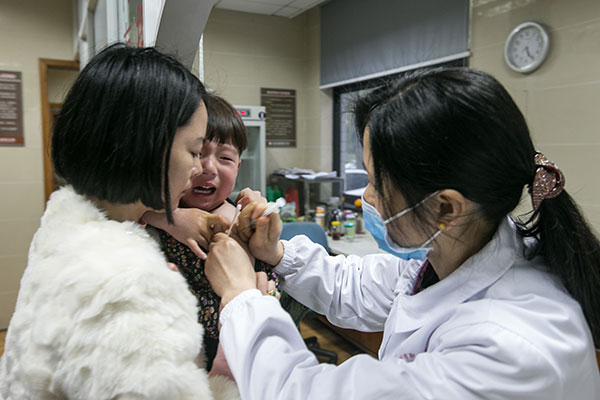 |
|
A patient receives rabies vaccine injection at Hangzhou hospital, March 22. [Photo/Agencies]
|
Both the vaccines that are distributed for free to all children through the Government's Expanded Program on Immunisation (EPI), and vaccines available for private purchase, are subject to the same stringent regulations on manufacturing.
Thus, all vaccines in China start life the same way – through a process that WHO has certified will produce safe, pure, and effective vaccines.
The issue is what happens once the vaccines leave the factory. The government-distributed, free (EPI) vaccines are distributed through a tightly managed, cold chain system.
A WHO-UNICEF evaluation of the EPI management system in 2014 and 2015 concluded that capacity to effectively manage vaccines is very strong.
The problem that last week's events have brought to light, is that distribution of vaccines for the private market do not follow the same high standards.
And sadly, this weakness in the system has been exploited by an unscrupulous few intent on making some quick cash, without any apparent regard for the implications for children's health.
China's EPI system is one of the best in the world.
The results speak for themselves: over 99% of Chinese children are now free for life from chronic hepatitis B as a result of use of hepatitis B vaccination. Poliomyelitis was eliminated 16 years ago. The incidence of measles is 99% lower than during the pre-vaccine era.
These accomplishments should inspire confidence.














